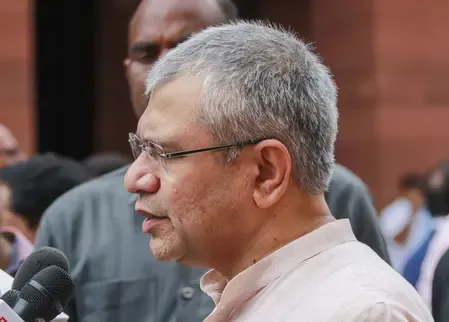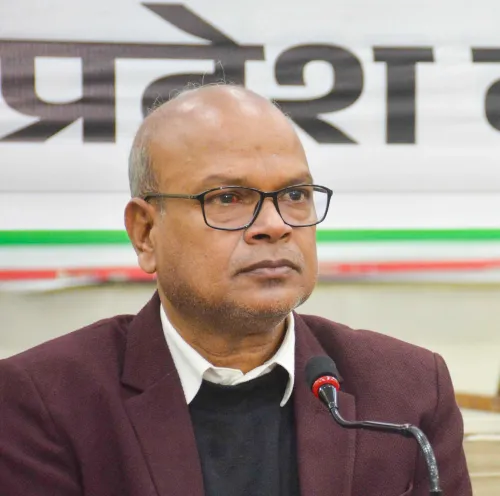Has the First Telecom System with India-Made Chips Achieved TEC Certification?

Synopsis
Key Takeaways
- First telecom system certified with India-made chips.
- TEC certification signifies quality assurance.
- India aims to reduce reliance on imported semiconductors.
- India Semiconductor Mission supports local manufacturing.
- Projected growth in semiconductor market highlights potential.
New Delhi, Sep 6 (NationPress) The Union Minister for Electronics and IT, Ashwini Vaishnaw, has revealed that a telecom system powered exclusively by locally-manufactured chips has successfully secured certification from the Telecommunication Engineering Centre (TEC).
The minister lauded this achievement on the X social media platform, calling it a significant advancement for India's semiconductor sector.
He stated on X, "A remarkable milestone for India’s semiconductor narrative! For the first time, a telecom system utilizing ‘made in India’ chips has passed the stringent standards and quality assessments (TEC certification)."
The TEC certification serves as the Department of Telecommunications' quality standard, confirming that telecom apparatus complies with rigorous performance and safety regulations. This approval not only paves the way for domestic implementation but also aligns India's local chips with their global equivalents, creating export prospects.
This achievement signifies strides towards diminishing dependency on imported semiconductors, a weakness emphasized by the recent worldwide shortages. Experts suggest that India's approach to bolstering design, assembly, testing, and integration capacities positions it well to tackle supply chain challenges.
With Taiwan, South Korea, Japan, China, and the US dominating chip manufacturing, this concentration poses supply chain vulnerabilities, which India aims to address.
ASML Holding NV, a premier semiconductor equipment manufacturer, has recently expressed its commitment to enhance collaboration with Indian firms in the coming year.
Initiated in 2021, the India Semiconductor Mission (ISM) features a Production Linked Incentive (PLI) scheme valued at Rs 76,000 crore to promote domestic production and design within the semiconductor industry.
Under this scheme, approved projects amount to 1.60 lakh crore, comprising Tata Electronics’ 91,000 crore fab in Dholera, Micron’s 22,516 crore packaging facility in Sanand, and the recently operational OSAT pilot line by CG Power that commenced in August.
India's focus is on mature nodes within the 28nm–65nm range, vital for telecom, automotive, and industrial sectors. The semiconductor market in India reached $38 billion in 2023 and is projected to grow to $45 to $50 billion by 2024–25, eventually hitting $100 to $110 billion by 2030. Worldwide, the semiconductor market is anticipated to soar to $1 trillion by the same year.










